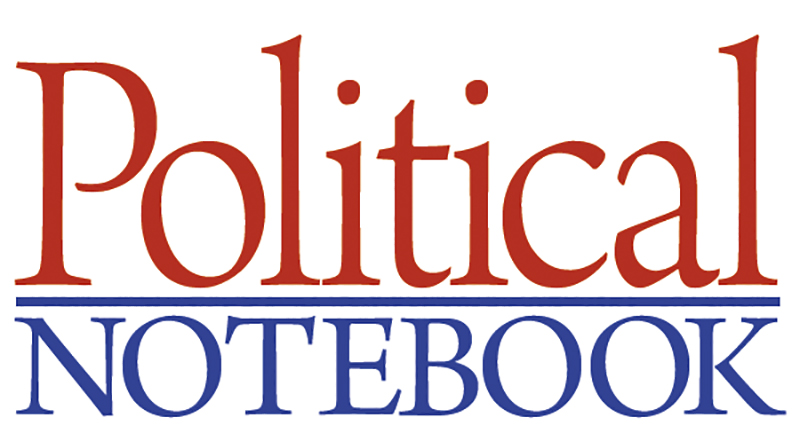Political Notebook: Salisbury mayor says she opposes partisan change in elections
Published 5:00 am Monday, February 21, 2022
During a meeting of the Salisbury Kiwanis Club last week, Mayor Karen Alexander broke from Rowan Republican and disagreed with efforts to make municipal elections and the school board race partisan.
In late January, Rowan Republicans submitted to Rowan County lawmakers a resolution requesting all municipal elections and the school board race become partisan. All municipal elections in the county currently are nonpartisan, which includes Salisbury City Council and surrounding town boards. The Rowan-Salisbury Schools Board of Education race is also nonpartisan.
The call for partisan elections comes after local Democrats and the Republican Women’s Group endorsed a number of candidates in the 2021 municipal races, including Alexander’s bid for mayor. While the Rowan County Republican Party didn’t endorse in 2021, the party’s leadership voted to follow the lead of Democrats and endorse candidates in municipal elections moving forward. Democratic Party Chairman Geoffrey Hoy told the Post making endorsements for candidates became official about four years ago, though the party does not currently have a stance on whether local elections should be made partisan.
Following a question during the Kiwanis Club meeting Friday afternoon, Alexander said she would not have been elected mayor had the election been a partisan one. She called for a move away from “tribalism” and a shift toward “pluralism.”
“Because if everybody wants 100% when they sit at the table, think what that does,” Alexander said. “It creates a bottleneck. Nobody gets anything done.”
Alexander added that compromise is “the lubrication of how we do everything, in our businesses, in our personal lives.”
The resolution Republicans sent states the county’s “political parties and related special interest group organizations are increasingly involved in these elections” and that “clarity to the electorate is of significant importance.”
Rowan Republican Party Chair Elaine Hewitt said the addition of an “R” or “D” next to a candidate’s name on the ballot provides clarity, particularly since it’s already public information.
“Members have observed that nonpartisan races have become increasingly partisan, though partisanship has existed for many years,” Hewitt said.
Rep. Sasser encouraged by meetings to discuss potential Medicaid expansion
Rep. Wayne Sasser, the General Assembly’s lone pharmacist and chair of the House Health Committee, said recent meetings with a committee studying Medicaid expansion are encouraging.
Sasser is a Republican currently representing parts of Rowan, Cabarrus and Stanly counties. However, if newly drawn state and congressional maps receive the final thumbs up from a three-judge panel of Superior Court, Sasser will instead represent all of Stanly and Montgomery counties if re-elected later this year.
Medicaid expansion has been a sticking point among Democrats and Gov. Roy Cooper in the previous few budget cycles. The state’s current budget, credited as a compromised one, created a committee for lawmakers to explore Medicaid expansion, with a presentation of those findings and recommendations made before the November elections and start of the 2022 legislative session.
North Carolina is currently one of 12 states that hasn’t expanded Medicaid despite federal funding provided for the expansion. Medicaid expansion in North Carolina could provide health coverage to hundreds of thousands more North Carolinians, with many of those including the working poor. The taxpayer-funded health insurance program currently serves about 2 million North Carolinians, with most including children, pregnant women, senior adults and people with disabilities.
Sasser said he tuned into Friday’s meeting virtually. The discussion mostly centered on education about the program and featured guests from other states to discuss what has and hasn’t worked in their home states. The discussion also touched on an anticipated shortage of nurses.
Sasser said questions focused on how to tackle the issue of providing health care coverage in North Carolina rather than questions about why it should or shouldn’t be expanded. Sasser said it’s encouraging as he and other lawmakers are working to find reach a “win-win” for the state and its citizens.
Sasser said his biggest questions at this time include how the state will pay for the expansion once federal funding rolls off, how the state can provide enough health care workers to cover an additional estimated 500,000 residents and how those residents who receive Medicaid in the expansion are selected.
Additionally, North Carolina could opt for partial expansion, following the lead of states like Georgia. Georgia expanded its Medicaid coverage to those falling within 100% below the federal poverty level. Full expansion includes those earning up to 138% of the federal poverty level. Georgia also included work requirements in its expansion.
But the committee is a long way from a bill or presentation, Sasser said, as they continue to learn as they go along.




